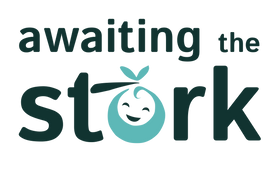Postpartum depression: what you should know

Whether you or someone you love has recently given birth, understanding postpartum depression (PPD) is crucial. PPD affects one in nine new mothers and is characterized by symptoms such as persistent sadness, irritability, mood swings, difficulty concentrating, and withdrawing from loved ones. Certain factors, like a personal or family history of depression, lack of support, or complications during pregnancy, can increase the risk of developing PPD.
Recognizing the signs and symptoms
Common symptoms of PPD include:
- Feeling empty, sad, or overwhelmed
- Difficulty bonding with your baby
- Crying without a clear reason
- Difficulty concentrating or making decisions
- Losing interest in activities you once enjoyed
- Withdrawing from family and friends
- Feelings of guilt, worthlessness, or inadequacy
- Feeling unable to care for your baby
Overcoming postpartum depression: activities, supplements, and support
Activities
- Physical exercise: Regular exercise, like walking, boosts mood by releasing endorphins.
- Mindfulness and relaxation: Practices such as yoga and meditation help manage stress and anxiety.
- Social support: Staying connected with friends, family, or support groups is essential for emotional support.
Postpartum supplements and vitamins
- Omega-3 fatty acids, Vitamin D, Magnesium, B vitamins: These can support mood and energy levels.
-
Important considerations:
- Dosage: The correct dosage is key to avoiding adverse effects.
- Interactions: Check for interactions with any medications you're taking.
- Quality: Choose high-quality supplements from reputable sources.
- Individual Response: Responses to supplements can vary; what works for one person might not work for another.
Books and resources
Prioritize Professional Help
PPD is a complex condition that often requires a combination of treatment approaches:
- Therapy: Cognitive-behavioral therapy (CBT) and other therapies are effective in managing PPD.
- Medication: Antidepressants may be prescribed in more severe cases.
- Support: Engaging with other mothers and joining support groups can be invaluable.
Helpful Resources
- Postpartum Support International: 1-800-944-4773
- National Alliance on Mental Illness (NAMI): 1-800-950-NAMI (6264)
Conclusion
Postpartum depression is a serious condition that affects many new mothers, but with the right support, activities, supplements, and professional care, it can be managed effectively. Recognizing the symptoms early and seeking help is crucial. Remember, you’re not alone on this journey, and resources are available to guide you through recovery. If you or someone you know is struggling with PPD, please reach out to a healthcare provider for support.


